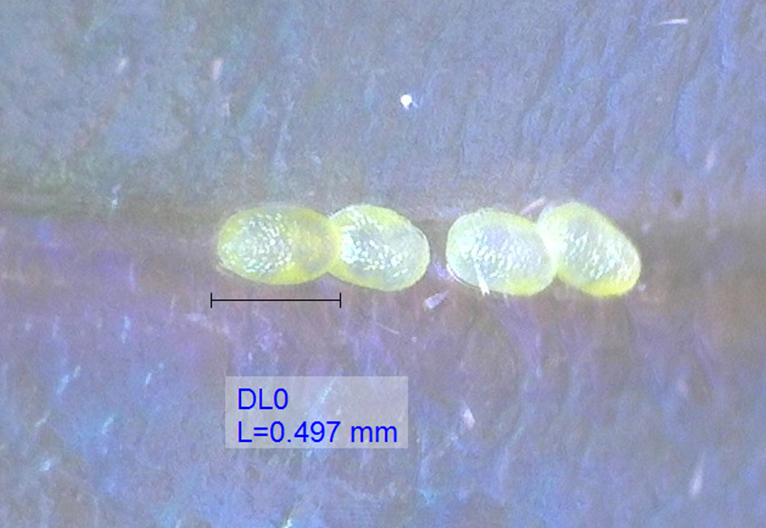Bob Weir used to sing “what a long strange trip it’s been”. I was never quite
sure what he meant until this fall. I can honestly say that the insect pressure
this season was the most unusual and unexpected I’ve experienced in a long while.
A quick look at both recent and historic data on pest abundance recorded from our
University of Arizona research plots suggests that insect pressure this fall was
historically low for some pests, while unusually heavy for other pests compared
with previous years. (see
Pest Abundance on Desert Produce and Melon Cops in 2016)
Whitefly: Areawide, whiteflies in fall melons were at the lowest
levels we’ve measured over the past 10 years. Accordingly, CYSDV incidence at harvest
in cantaloupe fields was the lowest we’ve seen since the virus first showed up in
2007. The virus incidence was very low in Texas Hill and Wellton, but a few hot
spots were observed in Roll in fields adjacent to late-terminated cotton. For the
most part, whiteflies were light in produce crops with an occasional flare-up in
some isolated areas (e.g., Wellton).
Bagrada bug: Where did all the bagrada bugs go this year? They
were so light in my research plots that we were not able to conduct any efficacy
trials this fall. In fact, bagrada abundance was the lowest we’ve observed since
the invasive stink bug first showed up in 2010. Light populations appeared in early
October, but never increased to the high numbers we typically see during October.
Western flower Thrips: On the other hand, where did all the thrips
come from, especially the bean thrips? The thrips pressure this fall was the heaviest
I’ve experienced in a long time. I often don’t conduct many fall thrips trials because
the numbers are often too light and variable, but this year was the exception –
the highest counts we’ve recoded since doing fall trials. And to top that, bean
thrips we’re extremely heavy in early October; the most I’ve seen in Yuma to date.
Flea beetles: Prolonged heavy activity during September and early
October. First time in several years we were able to get some good field efficacy
trials in seedling broccoli. Received numerous reports in September from PCAs struggling
to keep feeding damage to a minimum. Can still find a few around. Beet armyworm,
cabbage looper and corn earworm: Nothing too unusual here. Population abundance
on untreated lettuce at the YAC this fall was higher than last year, but lower than
2014. Activity has slowed considerably in recent weeks with the cooler weather.
Overall, corn earworm was light.
Diamondback moth (DBM): Without a doubt, this was the most surprising
(and severe) pest to show up in Yuma this fall. In 26 years as an entomologist in
Yuma, I’ve never seen DBM outbreaks like what occurred in isolated fields of transplanted
broccoli, cauliflower and cabbage in October/November. PCAs are still battling the
pest. Most years you can barely find them on fall crops, and they were almost non-existent
in my research plots this fall. In some respects, it reminded me of the whitefly
outbreaks of the early 1990’s. Caution: This may not be over. DBM
larvae are starting to show up in direct-seeded crops, and there are plenty of moths
moving around. The cold weather will slow them down for a while, but be prepared
for a battle when temperatures pick back up again in January/February. Let’s hope
for hard freeze this winter. Not sure what happened yet, but we’re working on the
problem and will hopefully have some useful recommendations by spring. In the meantime,
keep on truckin.
NAME THAT PEST CONTEST
 Diamondback Moth Eggs
Diamondback Moth Eggs
Remember, When in Doubt . . . . . “SCOUT”
Click picture to listen to John’s update

|



